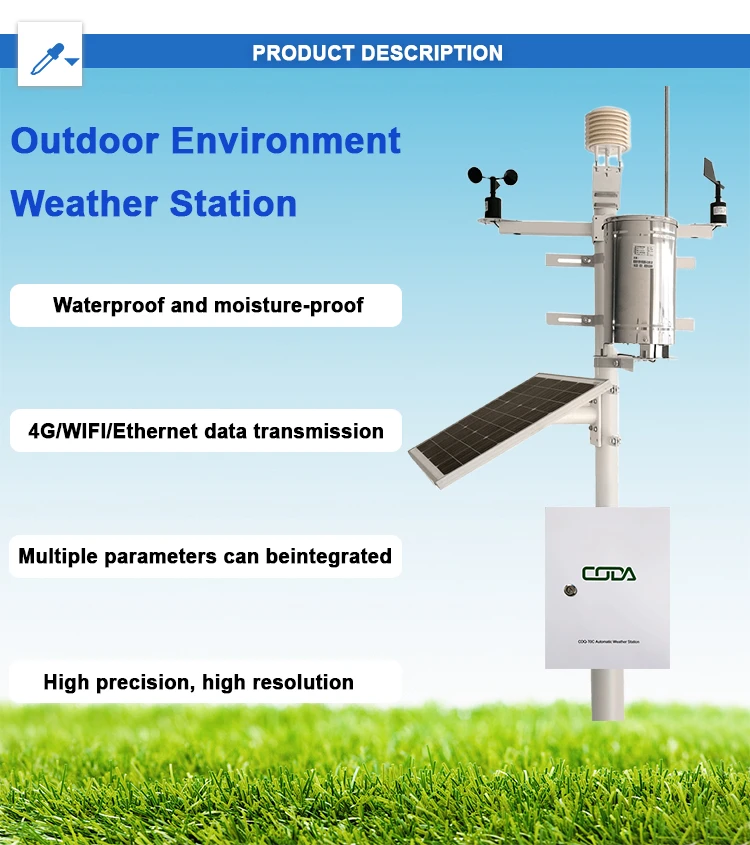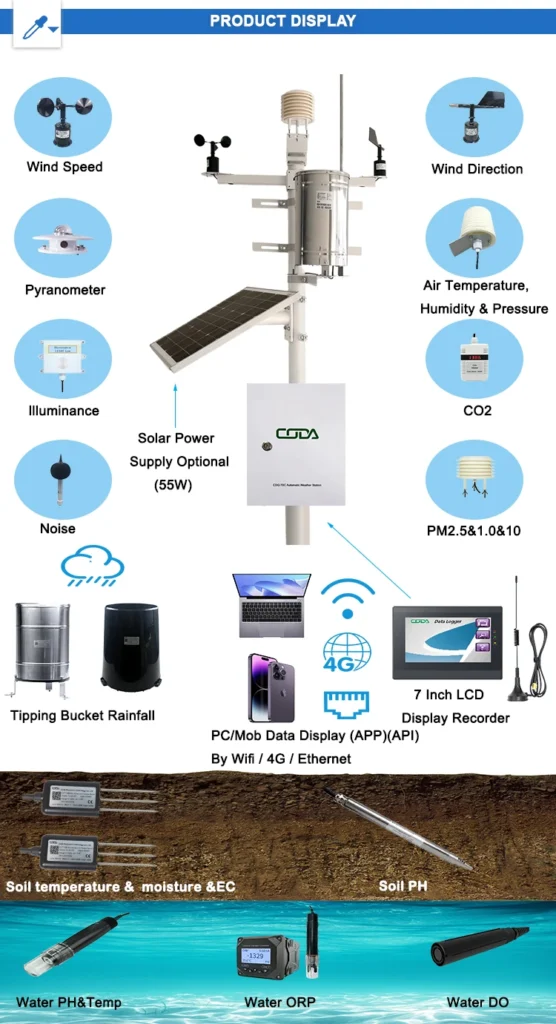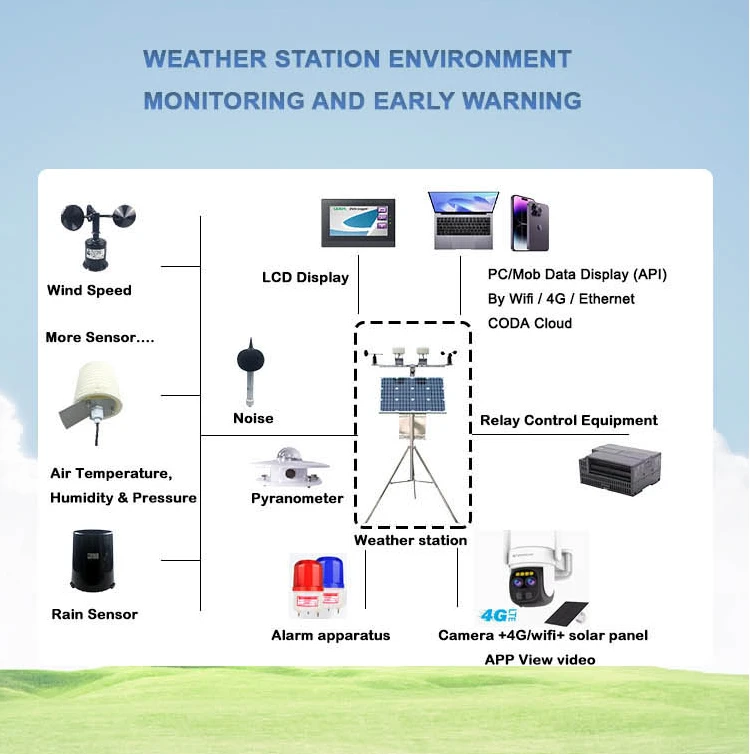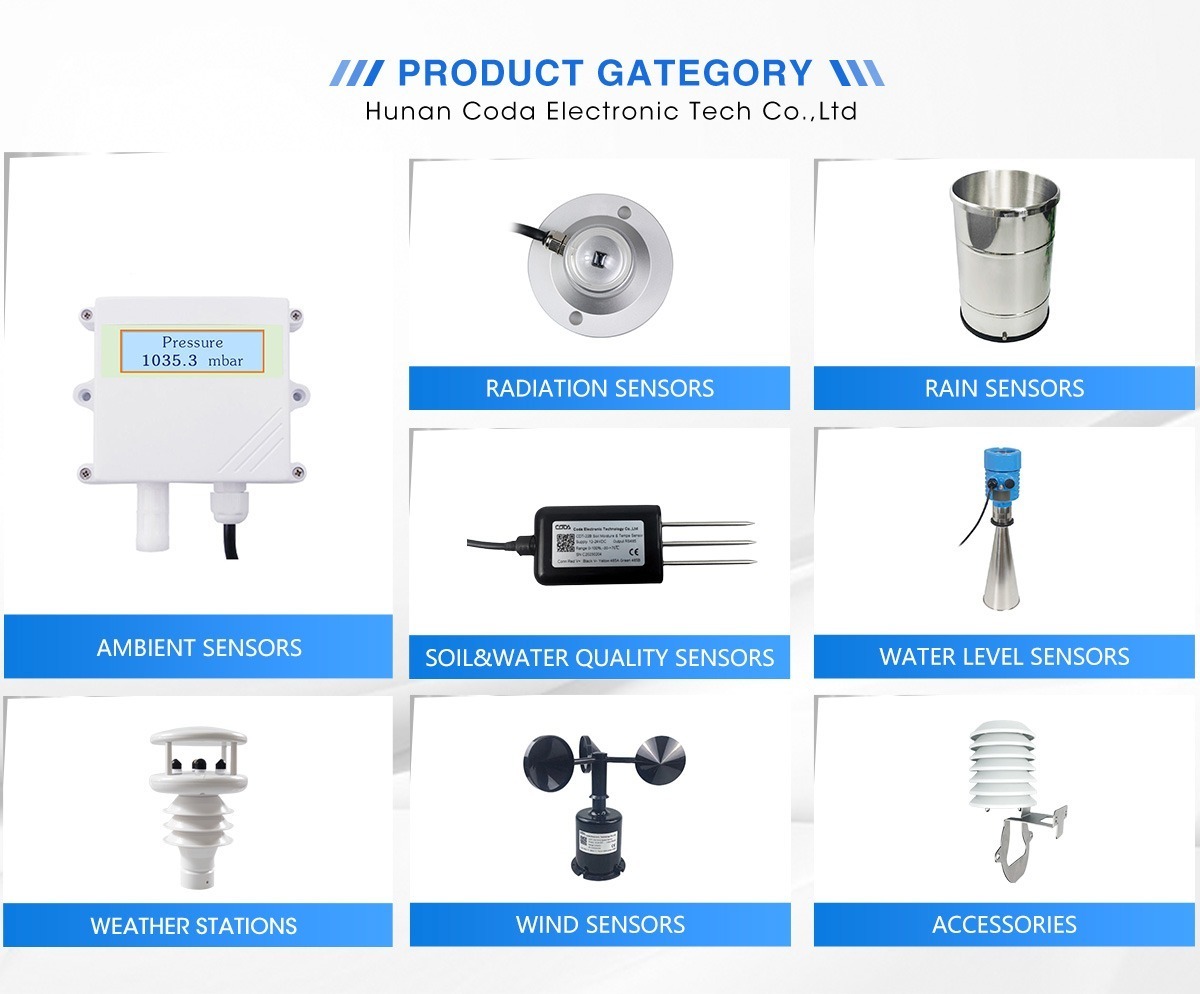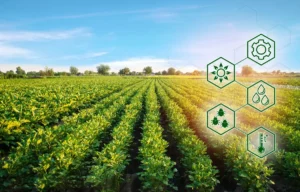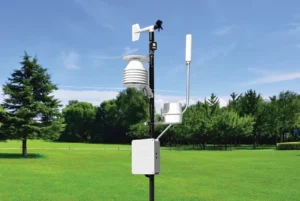Weather Station Data Loggers: Accessing Meteorological Data
Introduction
Weather plays a big role in our daily lives. It affects our daily activities and big environmental choices. To track and understand weather changes, weather stations with data loggers are very important tools.
These advanced systems collect and save a lot of weather data. They give meteorologists, researchers, and hobbyists useful information for their work. This article looks at what weather station data loggers do. It also talks about their benefits and how people use them.
Understanding the Function of Weather Station Data Loggers:
Weather station data loggers are the cornerstone of modern weather monitoring systems. Their main job is to measure and record different weather factors. This encompasses temperature, humidity, atmospheric pressure, wind velocity, wind direction, precipitation, and sunlight.
These devices use sensors to gather data in real-time at specific times. This information is important for studying climate trends. It helps track changes in the environment and predict extreme weather events.
Data Storage: Internal and External Options:
Weather station data loggers have built-in memory. This lets them record data all the time. The memory size changes by model. It may vary from a few hundred kilobytes to multiple gigabytes.
Many loggers use extra storage with external devices. This includes SD cards, USB drives, and cloud platforms.
Local storage on the device keeps data safe. This is very useful in remote areas with weak internet connections. It is a good idea to move data from internal memory to external storage often. This helps prevent data loss from overwriting.
Accessing Weather Data: How to Get and Connect
Efficient data retrieval is a key task for weather station data loggers. They provide different ways to connect to meet various needs. These techniques include direct connection, remote access, and wireless communication.
Direct connection: This method involves linking the logger to a computer or mobile device through cables or adapters. Manufacturers often offer special software to access the stored information. With this method, users can easily see weather trends. They can create detailed reports and make smart choices based on data.
Remote access: More advanced systems allow users to connect from any place with an internet connection. This lets them get data easily. Researchers can connect to the logger through online platforms or apps. This lets them see real-time data from many locations without being there in person.
Wireless transmission: New technology has made wireless data transfer a popular and easy choice. Loggers use wireless technologies such as Wi-Fi, Bluetooth, or cellular networks.
They can automatically send data to central servers or cloud platforms. This removes the need for physical connections. It also helps to find things, especially in remote or hard-to-reach places.
Benefits and Advantages of Weather Station Data Loggers
Weather station data loggers have many benefits compared to traditional methods of recording weather by hand. Here is a summary of their main benefits:
**Accuracy:**
These devices give very accurate weather measurements. They reduce the chance of human mistakes in collecting data. This ensures results that are reliable and consistent. This makes them much better than writing things down by hand.
**Real-time monitoring:**
Data loggers record weather data at set times. They also let you access this information in real-time. This helps track the weather and analyze trends.
It also aids in understanding what affects weather patterns. This gives important insights for meteorologists and researchers.
**Ease of installation and operation:**
Weather station data loggers are built with user convenience in mind. They are easy to install and use. They often have simple interfaces and clear manuals. This makes them easy for anyone to understand, even if they are not experts.
**Long-term data storage:**
These devices can store a lot of historical data for a long time. This skill helps with climate studies, trend analysis, and creating accurate weather prediction models.
**Versatility:**
Weather station data loggers come in many types. They are made for different purposes, such as watching a small farm or large research projects. Their ability to adjust makes them good for many different needs.
Applications of Weather Station Data Loggers
The use of weather station data loggers spans across various fields. Below are some noteworthy applications:
**Agriculture:**
Farmers use these tools to make good choices about watering, when to plant, and how to protect their crops. Tracking weather conditions helps improve resource use, lessen crop damage from surprise weather events, and increase yields.
**Weather forecasting:**
Meteorologists rely on data loggers to get real-time weather information. These observations help us predict weather patterns, severe storms, and other climate events more accurately.
**Research and development:**
Researchers use data loggers to study climate change, weather patterns, and how the atmosphere works. Studying long-term weather data gives us important information about the Earth’s climate system. It shows how different factors affect it.
**Environmental monitoring:**
Data loggers play a pivotal role in studying environmental conditions in vulnerable ecosystems. They help assess the effects of weather on habitats, biodiversity, and overall ecological well-being.
Conclusion
In summary, weather station data loggers are useful tools. They help collect, keep, and study weather data. Their skill in giving correct readings is important. They can store data for a long time.
They have many uses, too. This makes them important for checking the weather and doing scientific research. As technology changes, these devices help meteorologists, researchers, and weather fans understand weather patterns more clearly. They also make predictions more accurate and help take care of the environment.
The company strives to deliver excellent returns to its shareholders by pursuing growth opportunities while adhering to socially responsible and ethical business practices. It has established itself as a model of success in the industry.
